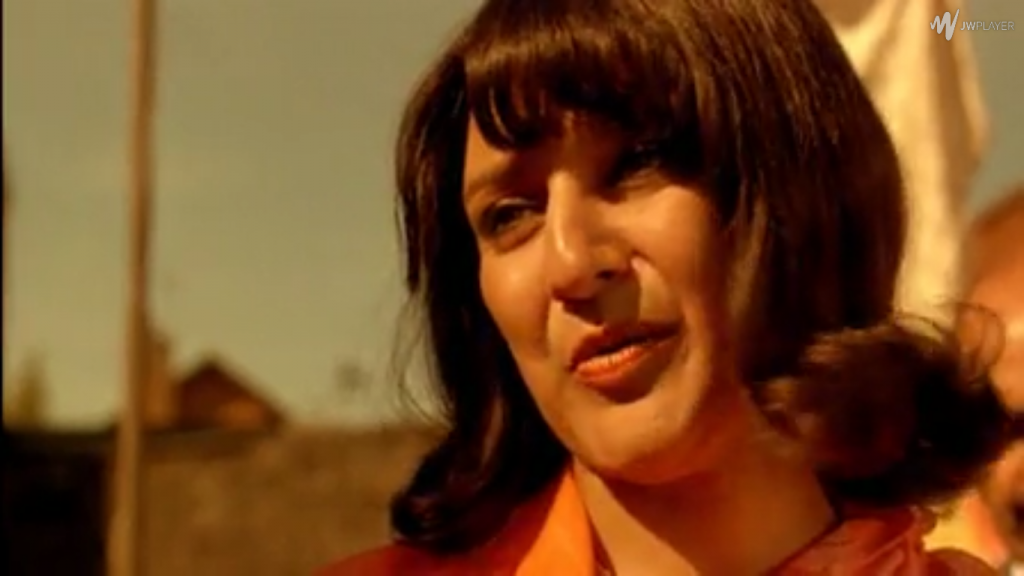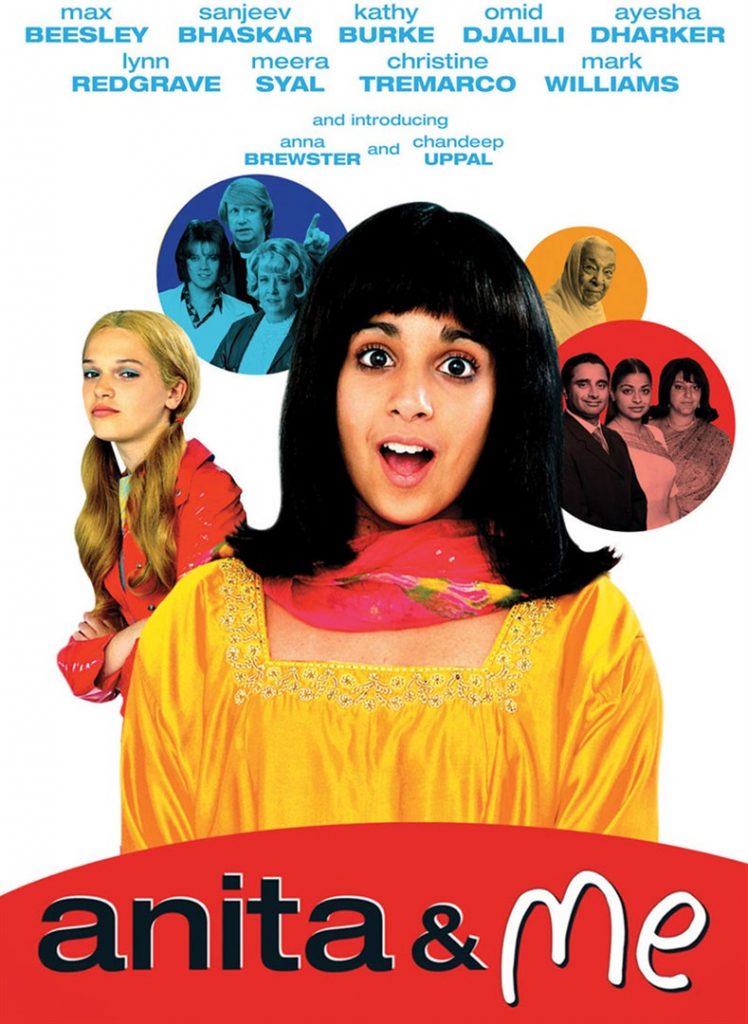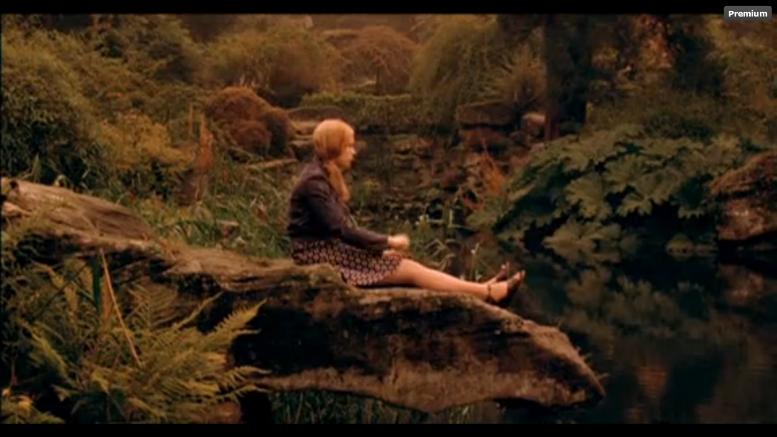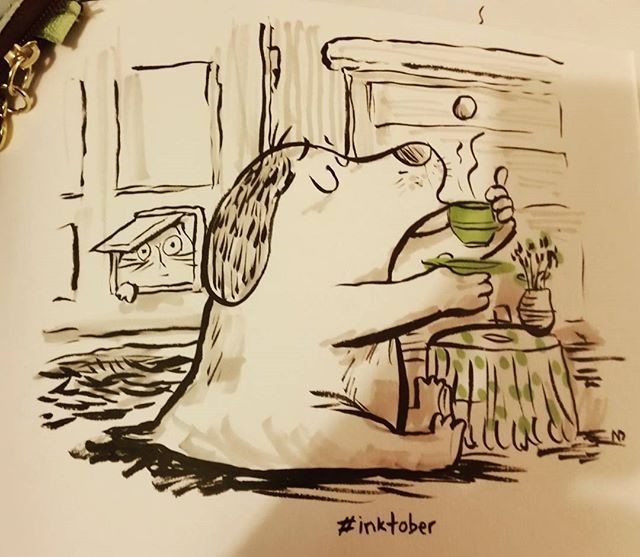Auntie Shaila and her family arrive early in the film, the last of many Indian families who have come to see Meena’s family. The scene recreates the overarching approach of the film, where humour serves to subdue and ridicule racism.
Auntie Shaila is introduced as a figure of ridicule in the film. This is established as she is seen stepping in dog poo. This acts as a physical representation of the film literally pooh-poohing her racist remarks. Shaila shrieks in reaction to this, interrupting the traditional Punjabi music which soundtracks the arrival of the other families. This interruption illustrates how Shaila is a disruptive, annoying force and more central to the plot than the other families.
Hüseyin reverses the film conventions of introducing Shaila and her family by mid-shot. The film cuts to Shaila from the waist down, rather than the waist up. The focal point of the shot is Shaila’s sandal, covered in dog poo. By showing this before Shaila’s face, Hüseyn allows the incident to take precedent and comically aligns Shaila with the poo she has stepped in. Therefore, this excrement becomes part of her characterisation.
Like many outdoor scenes in the film, at the point of Shaila’s introduction we can hear the barking of dogs. These dogs are rarely seen but supposedly to blame for the mess on the pavement. When the dogs are on screen, they are loose and roaming, unrestrained and without their owners. This makes them seem feral. Furthermore, the presence of poo on the pavement shows a lack of care and responsibility from their owners. Therefore, the dogs can be equated with the white British children in the film. Like the dogs, Anita and her very young sister are neglected. They are allowed out without supervision and their mother is often away. Through this, the dogs are used to represent a pattern of neglect in the community. Pet keeping is presented as a white British past time in the film, it is later laughed at by the Indian women. The mistreatment of the dogs in the film is used as a greater symbol to establish differences in parental styles of Anita and Meena, which showcases their unequivocal difference.
After she has stopped shrieking, Shaila begins to shout about her dislike for Meena’s village. She calls the village a ‘jungle’ which she exemplifies through the ‘dog mess on her sandals and the inbreds staring at [them]’. The insult ‘inbred’ invokes ideas of animal like breeding, with no regard for social convention. The poo at once embodies Shaila’s disgust at Meena’s village and the film’s mockery of this disgust. Shaila prescribes the people of the village with a mixture of “non-civilised” attributes: Anita’s white neighbours are at once wild animals in the jungle, responsible for the dog mess and incestuous. Shaila, therefore, creates the idea of otherness, where race indicates civilisation and the animal is used to insult a lower form of life that is less advanced.
Within the context of her introduction and character, Shaila’s racist remarks is no more than a source of embarrassment for Meena’s family and humour for the audience. Shaila has been introduced as over the top, irritating and loud. She represents no threat and the film instead makes fun of her views. The stepping in dog poo is undoubtedly a silly joke to make of her. However, as the film is told through Meena’s perspective, this infantile joke acts as a manifestation of Meena’s fantasy.



